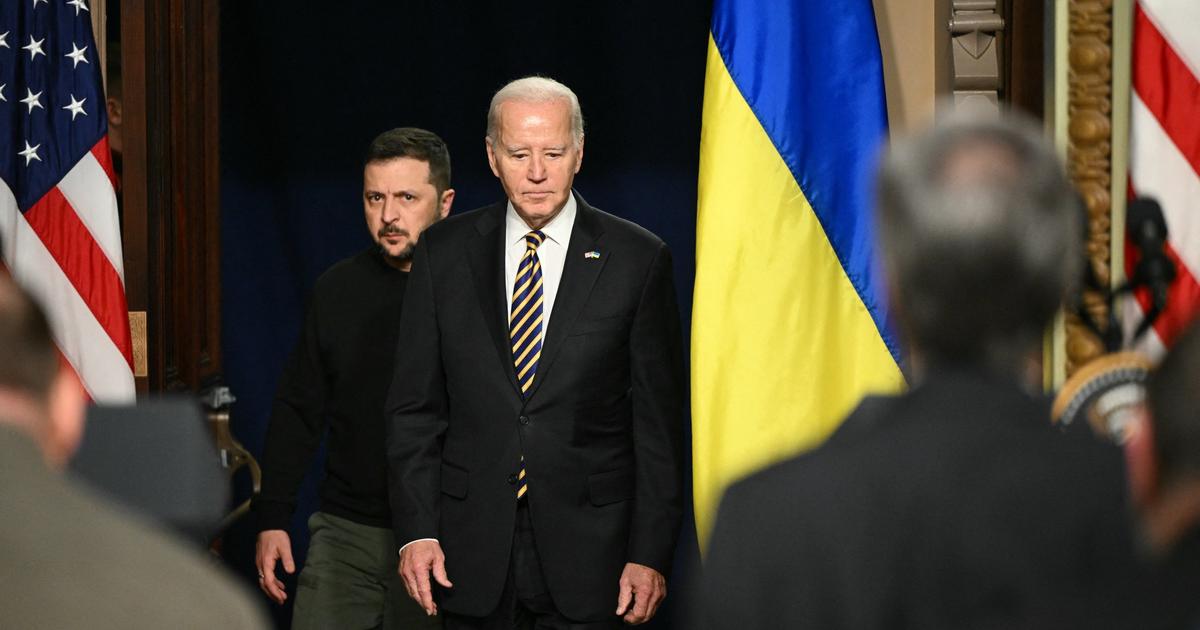At al-Chifa Hospital, the Israeli army faced a treacherous breakthrough?

Israel’s attack on the al-Chifa hospital complex is becoming the longest military operation since the start of the war between Israel and Hamas. This is the second time the Jewish state army has intervened there in six months.
It is becoming the Israeli army’s longest “targeted operation” in the war against Hamas. Fighting has been going on for ten days at al-Chifa hospital in the Gaza Strip. The second attack on the hospital complex, the largest and oldest in the Palestinian enclave since October 7.
About a thousand Israeli soldiers, backed by tanks, entered al-Chifa buildings on Monday, March 18, in an operation to “clear” the presence of fighters from Hamas and its ally, Islamic Jihad.
“Strategic Success”
This second raid should be swift as the Israeli military already announced in November that, during the first attack, it had “cleared” the area of Hamas presence. This first operation was also believed to have allowed Israel to block a tunnel road under a hospital serving Palestinian fighters.

Not only is the new Israeli offensive moving forward, but the fighting has also spread to the surrounding areas of the huge hospital complex. Hamas was able to launch 70 attacks against Israeli forces from outside and inside the hospital in ten days, calculated the Institute for the Study of War, an American think tank that works with the center. Conflict monitoring platform to provide daily summaries of critical threats events in the war between Israel and Hamas.
Despite intense fighting in the supposedly “cleared” area, the Israeli army presents the operation as a success. She emphasizes that she was able to “eliminate dozens” of enemy fighters and find new “infrastructure and weapons caches” in the hospital.
“From a strategic point of view, we can say it’s a success,” confirms Veronika Poniskajaková, an expert on international security issues and the Israeli-Palestinian conflict at the University of Portsmouth. “The Israeli army made it look like it was going to focus its efforts on another area – a refugee camp in the middle of the Gaza Strip – and when the Hamas fighters retreated to the hospital compound, the Israeli soldiers, who were ready, closed in. ” explains Aaron Bregman, an expert on the Israeli-Palestinian conflict at King’s College London.
A type of trap that “probably allowed Israel to retrieve information about their enemy, as indicated by interrogation images and videos released by the Israeli military”, notes Omri Briner, an analyst and expert on Middle East geopolitics at the International Team For the Study of Security (ITSS) Verona, an international group of experts on international security issues.
Image war
Progress appears to be slow because the Israeli military is trying as much as possible to avoid a media backlash linked to the military operation launched at the hospital. Last November, more than 20 patients died in fighting launched by Israel in al-Chifa, according to the Hamas-run Gaza Health Ministry. The attack also caused a health disaster for the Gazans, who were deprived of the most important hospital complex in the enclave. Washington expressed his concern very openly to his Israeli ally about the “human cost of operations in hospitals”.
Also read“It’s no longer a health center, it’s a mass grave,” says the director of Gaza’s al-Chifa hospital.
Once again, Israel’s actions in al-Chifa attracted international attention. Tedros Adhanom Ghebreyesus, director-general of the World Health Organization (WHO), described hospital conditions as “absolutely inhumane” for patients and health workers.
But Clive Jones, an expert on Israel and the Middle East at Durham University, insisted, “Israel was smarter this time in the way it presented the operation to the world.” The military is using drone images of the exchange of fire and photos of the discovery of weapons caches to “try to convince international opinion that they had legitimate reasons to return to this hospital to fight,” the expert added.
Israel also needs to prove its ability to conduct such highly sensitive operations with as few civilian casualties as possible. Indeed, “if the war in Iraq (2003, editor’s note) proved one thing, it’s that as soon as the military leaves an area (then American, Israeli in Gaza, editor’s note), the insurgents want to go back,” says Aaron Bregman. is In other words, notes Shahin Modares, an independent expert on international security issues and the Middle East, “we should expect to do the same thing in other hospitals, but also in schools or refugee camps.”
The Israeli military is biding its time in al-Chifa to show Hamas “that it does not hesitate to lead the fight in an environment it considers vulnerable”, Omri Briner assured. While he wants to prove to the international community that he knows how to do it.
Strategic failure?
But if the operation looks like an “operational success”, it is also a strategic failure for Israel, believes Clive Jones. After fighting in northern Gaza at the beginning of the war and the first visit to Al-Chifa Hospital, “the fact that so many Hamas fighters managed to return to a place as sensitive as this hospital complex should be worrying for the Israeli General Staff,” assures Veronika Poniskajakova.
This shows that Hamas “can afford to carry out guerrilla operations aimed at demoralizing Israeli troops, while seeking to distract them for a long time in the hope that international pressure will force Israel to accept a cease-fire,” asserts Shahin Modares.
Also readGaza: Al-Chifa Hospital at the heart of the war?
The fact that Hamas adopted this strategy was certainly expected, experts interviewed by France 24 believe. But “the intensity of the fighting around the hospital shows that Israel may have underestimated their enemy’s ability to regroup quickly in the north”, Clive explains. Jones.
For this expert, the return to al-Chifa hospital “reveals a political flaw in the Israeli plan that includes advancing into Gaza to ensure the stability of areas where the Israeli army is not”. And the latter may be less and less everywhere: “We mustn’t forget that they have gradually withdrawn troops in recent times,” added Clive Jones.
“It’s a classic case of the chicken and the egg,” says Veronika Poniskakova. According to her, Israel now has to choose whether its priority is to “establish a regime in an area where the military does not have a free hand or deal with Hamas forces in the south to have a free mind.” Calm down and find out. A political solution. In this regard, the fighting in al-Chifa also proves, these same experts believe, that the Israeli army is still far from achieving its main objective: the destruction of Hamas.
(TagsToTranslate)Middle East





